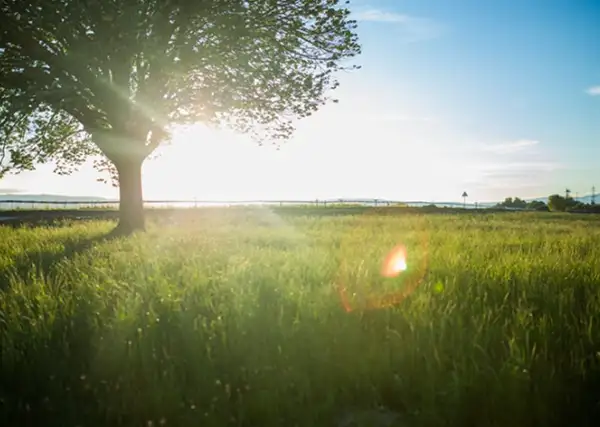Conscious Farewells
Saying goodbye to a loved one is a truly personal experience, and it’s becoming a lot more common for people to consider the environmental impact of their final farewell. Traditional funeral options, such as hardwood coffins, burials and cremations, each have a cost to the planet.
For example, the production of hardwood coffins requires the felling of trees, traditional burials involve embalming chemicals like formaldehyde, which can leach into the soil and waterways, and cremations use large amounts of energy and release carbon dioxide into the atmosphere.
As we all become more aware of our carbon footprint and its impact on the environment, it’s no wonder many people are now looking at more sustainable ways to celebrate a person’s life.
Let’s take a look at some of the different eco-friendly funeral options that are available.
Sustainable burial options
Starting with one of the first aspects of planning a funeral, your choice of coffin can make a big difference to the environment. Traditional hardwood coffins are no longer the go-to. People are now considering natural coffins made from materials such as wicker, bamboo or strong cardboard. These not only take less energy to produce but also decompose more quickly and naturally.
Beyond coffin choice, natural burial grounds provide eco-friendly spaces that are designed to support the natural decomposition process, often located in areas that promote biodiversity and conserve local ecosystems. Finally, tree-planting memorials create a living legacy that helps offset carbon emissions while providing a habitat for wildlife that encourages biodiversity.
Eco-friendly alternatives to cremation
For many years, traditional cremations have been the preferred choice for funerals, but recognising the impact they have on the environment is leading many people to seek greener alternatives. Two methods are becoming more popular: water cremation and human composting.
Water cremation, or resomation as it is also known, is the process of using water and alkali to break down the body. This alternative to cremation uses less energy and produces fewer emissions than flame cremation. As a relatively recent concept in the UK, people looking for more eco-friendly farewells are exploring this option.
Another method people are considering is human composting. Also sometimes called natural organic reduction, this method involves placing the body in a controlled environment with organic materials such as wood chips, straw and alfalfa. Over several weeks, the body breaks down to become a nutrient-rich compost that can be used to enrich soil. This method works well with sustainable living memorials.
Sustainable memorial ideas
Having a memorial is a great way to create a lasting memory of lost loved ones, and there are plenty of eco-friendly options for you to choose from, such as:
- Living memorials: These include planting a tree or creating a garden in the deceased’s honour.
- Digital memorials: In place of physical memorials, digital ones, such as websites that share stories and memories of the deceased, are becoming increasingly popular.
- Jewellery tributes: Another popular choice is having keepsake jewellery made from a loved one's ashes.
Looking for help to plan an eco-friendly funeral?
If you are planning an eco-friendly funeral for someone special or pre-planning your celebration of life, browse our directory of funeral providers.
Take the first steps towards planning a meaningful goodbye
At Fiesta Farewell, we believe that every life should be celebrated. Beginning conversations about dying with loved ones is the first step in planning a meaningful goodbye. Explore our directory of funeral providers to help you plan a bespoke farewell that celebrates a person’s legacy.






